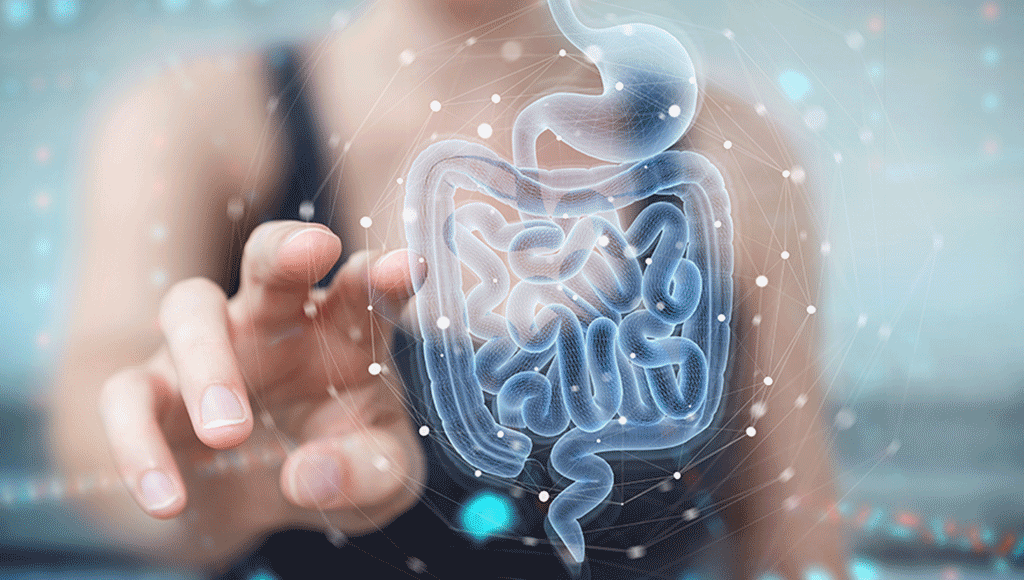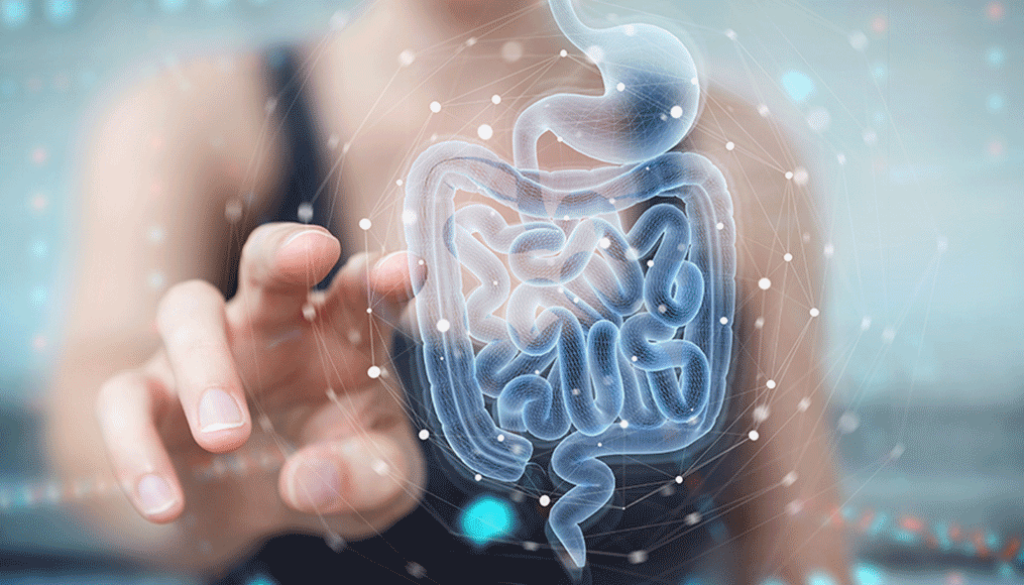7 Tips for Better Digestion
As we age, it often feels like time speeds up while our bodies slow down, and our digestive systems are no exception. The contractions responsible for moving food through our oesophagus and rectum weaken over time. Additionally, the stomach’s capacity decreases, and food moves more slowly from the stomach to the small intestine. These changes can lead to various digestive issues, from occasional indigestion or constipation to more serious conditions like irritable bowel syndrome, diverticulitis, and GERD.

Prevention is key when it comes to managing digestive health. Recognizing factors that increase the risk of stomach problems and taking proactive steps to prevent them is essential. Here are some tips to improve gut health:
1. Eat a Balanced Diet: Consume a diet rich in fruits, vegetables, whole grains, lean proteins, and healthy fats. Avoid excessive consumption of processed foods, refined sugars, and saturated fats.
2. Stay Hydrated: Drink plenty of water throughout the day to help maintain proper digestion and bowel regularity.
3. Fibre Intake: Include fibre-rich foods such as fruits, vegetables, whole grains, and legumes in your diet to promote healthy digestion and prevent constipation.
4. Limit Alcohol and Caffeine: Excessive alcohol and caffeine intake can irritate the stomach lining and exacerbate digestive issues. Limit consumption to moderate levels.
5. Manage Stress: Chronic stress can negatively impact digestion. Practice stress-reducing techniques such as meditation, yoga, deep breathing exercises, or engaging in hobbies and activities you enjoy.
6. Exercise Regularly: Regular physical activity can help stimulate digestion and promote bowel regularity. Aim for at least 30 minutes of moderate exercise most days of the week.
7. Avoid Smoking: Smoking can weaken the lower esophageal sphincter, leading to acid reflux and other digestive issues. Quitting smoking can improve overall digestive health.
8. Get Adequate Sleep: Poor sleep habits can disrupt digestion and exacerbate gastrointestinal symptoms. Aim for 7-9 hours of quality sleep per night.
9. Practice Portion Control: Eating smaller, more frequent meals throughout the day can help prevent overloading the digestive system and reduce symptoms of indigestion.
10. Listen to Your Body: Pay attention to your body’s signals and avoid foods that trigger digestive discomfort or symptoms.
By incorporating these tips into your lifestyle, you can promote better digestive health and reduce the risk of gastrointestinal issues as you age.
Check your meds
Certain medications, especially when taken in specific combinations, can have adverse effects on digestive health. For instance, non-steroidal anti-inflammatory drugs (NSAIDs) such as aspirin, ibuprofen, or naproxen sodium can irritate the stomach lining and increase the risk of ulcers. Pain medications and certain blood pressure medications may contribute to constipation. Additionally, some antibiotics can disrupt the balance of beneficial bacteria in the gut, leading to diarrhoea.
If you experience stomach problems while taking medications, it’s essential to consult your doctor or pharmacist. They can assess whether your symptoms may be related to your medication regimen and recommend appropriate adjustments or alternative treatments to minimise gastrointestinal side effects.
Get off the couch
Indeed, physical activity plays a significant role in maintaining proper digestive health. Regular exercise helps stimulate bowel movements, promoting healthy digestion and bowel regularity. Conversely, leading a sedentary lifestyle can slow down digestion and increase the risk of constipation and irregular bowel movements.
Engaging in physical activity, such as walking, jogging, cycling, swimming, or yoga, can help keep your digestive system functioning optimally. Exercise helps stimulate the muscles of the digestive tract, promoting the movement of food through the intestines and facilitating bowel movements. Additionally, physical activity can help reduce stress, which can contribute to digestive issues like irritable bowel syndrome (IBS) or indigestion.
Incorporating regular exercise into your routine, along with other healthy lifestyle habits like staying hydrated, eating a balanced diet rich in fibre, and managing stress, can contribute to overall digestive health and well-being.

Drink up
As you age, it becomes easier to become dehydrated due to a dulled thirst sensation. Additionally, certain medications may increase urination frequency, further raising the risk of dehydration. Women, in particular, are at a higher risk of incontinence as they age, potentially leading them to reduce water intake to minimise bathroom visits. However, adequate hydration is crucial for good digestive health.
To maintain proper hydration levels, it’s essential to aim for the recommended water intake suggested by the U.S. National Academies of Sciences, Engineering, and Medicine. This recommendation is approximately 11.5 cups per day for women and 15.5 cups per day for men. By meeting these hydration guidelines, you can support proper digestive function and overall well-being.
Avoid trigger foods
For many women, digestive issues may arise from the foods they consume. Certain foods and ingredients, such as dairy, gluten, and artificial sweeteners, can trigger digestive distress. If you observe a consistent pattern between your diet and your digestive symptoms, it may be beneficial to identify and eliminate potential trigger foods.
Keeping a food diary can be a helpful strategy to track your dietary intake and how it correlates with your digestive symptoms. By recording everything you eat and noting how you feel afterward, you can identify patterns and pinpoint specific foods that may be contributing to your digestive problems.
Once you’ve identified potential trigger foods, you can gradually eliminate them from your diet and observe how your digestive symptoms respond. Additionally, incorporating foods that are known to promote digestion and soothe the stomach, such as fibre-rich fruits and vegetables, probiotic-rich foods like yoghourt, and easily digestible foods like rice and bananas, may help alleviate digestive discomfort.
By taking a proactive approach to identify and eliminate trigger foods, you can better manage digestive issues and improve your overall digestive health. Consulting with a healthcare professional or registered dietitian can provide further guidance and support in navigating dietary changes for optimal digestive wellness.
Detox your diet
Changing your diet is one of the most effective ways to cleanse your digestive system and maintain its proper function. Certain foods can enhance digestion and help prevent stomach problems, while others can hinder digestive health.
To support a healthy gut microbiome, which plays a crucial role in digestion, it’s important to consume foods rich in dietary fibre. Good sources of fibre include leafy greens, whole grains, and plenty of water. Aim for a daily intake of at least 25 grams of fibre to optimise digestion. Additionally, incorporating lean proteins, low-fructose fruits, and avocado into your diet can further promote digestive health.
Conversely, certain foods can disrupt healthy digestion. These include those high in animal fats, refined carbohydrates, processed foods, alcohol, artificial sweeteners, and spicy foods. Consuming these foods regularly may increase the risk of indigestion and irritable bowel syndrome (IBS).
If you struggle to consume enough foods that support digestion, consider taking a daily fibre supplement and/or a probiotic to help maintain a healthy gut microbiome.
By making mindful dietary choices and prioritising foods that support digestion, you can help cleanse and maintain the health of your digestive system. Additionally, consulting with a healthcare professional or registered dietitian can provide personalised recommendations to optimise your digestive wellness.
Don’t skip your screenings
Ensuring you undergo all the recommended health screenings can play a crucial role in identifying and addressing potential digestive problems before they escalate. Additionally, reporting any unusual stomach problems to your healthcare provider is essential for timely evaluation and management.
For digestive care, one of the most important screenings, especially for individuals over the age of 50 (or younger if there is a family history of digestive disease), is a colonoscopy. This screening procedure can help detect colorectal cancer and other gastrointestinal conditions early, when they are more treatable.
It’s essential to discuss with your healthcare provider which screenings are appropriate for your individual health profile and risk factors. They can provide personalised recommendations based on factors such as age, family history, and medical history.
By staying proactive about health screenings and promptly reporting any concerning symptoms to your healthcare provider, you can take proactive steps to maintain optimal digestive health and overall well-being.







